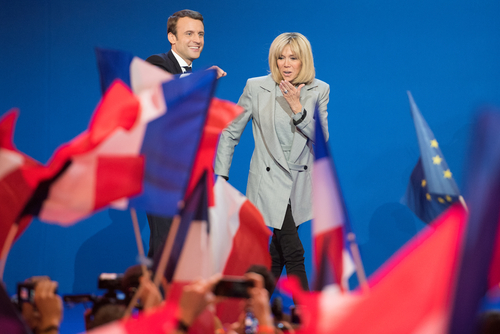France’s bold recognition of Palestine as a state has sent shockwaves through the international community, igniting debates and raising questions about the future of Middle East diplomacy.
France’s Historic Move
In a groundbreaking decision, French President Emmanuel Macron has announced that France will officially recognize the State of Palestine. This makes France the first G7 nation to do so, a move that has sent ripples across the globe. Macron made the announcement on July 24, 2025, through social media and in a letter to Palestinian Authority President Mahmoud Abbas. The recognition will be formalized at the United Nations General Assembly in September 2025, marking a significant shift in France’s Middle East policy.
This decision comes amid a dire humanitarian crisis in Gaza, with widespread reports of civilian casualties and mass starvation. France has long supported a two-state solution, and Macron’s decision is seen as an effort to break the deadlock in peace negotiations and respond to mounting international pressure for a diplomatic breakthrough. However, Israel has reacted strongly, condemning the move as a reward for terrorism and a threat to its security.
Reactions and Implications
Emmanuel Macron stated, “Given its historic commitment to a just and sustainable peace in the Middle East, I have decided that France will recognize the state of Palestine. Peace is possible.” The French government and foreign ministry will be responsible for implementing the recognition and engaging diplomatically with both the Palestinian Authority and Israel. Meanwhile, Israeli Prime Minister Benjamin Netanyahu has expressed deep concern, warning that a Palestinian state could become a launch pad to annihilate Israel, rather than coexist peacefully.
This move by France could potentially influence other EU and G7 nations to follow suit, altering the dynamics of international diplomacy regarding the Israeli-Palestinian conflict. Over 130 UN member states already recognize Palestine, but France’s recognition as a major Western power could pave the way for others, increasing pressure for a two-state solution.
Challenges and Criticisms
Critics of France’s recognition argue that it might undermine peace negotiations by emboldening hardliners on both sides. Without a viable peace process, some fear the recognition could remain largely symbolic, with limited practical effects on the ground. Nonetheless, supporters view it as a necessary step to balance power and incentivize negotiations, highlighting the moral and strategic imperative to address humanitarian suffering.
The recognition has also sparked domestic debates within France, with potential for increased tensions among its Jewish and Muslim communities. Economically, while the decision may not have immediate direct impacts, diplomatic relations with Israel could strain, affecting trade and investment. Socially, protests or unrest could arise in France and other countries, reflecting the broader geopolitical ramifications of this decision.
Looking Ahead
As France prepares to formalize its recognition at the UN, the world watches closely to see how this decision will impact the broader Middle East peace process. The upcoming UN General Assembly will be a critical moment, potentially reshaping diplomatic dynamics and challenging the traditional Western consensus. Israel’s sense of diplomatic isolation might increase, while the Palestinian Authority gains symbolic and diplomatic support, potentially strengthening its position in future negotiations.
The implications of France’s recognition of Palestine are complex and far-reaching. As the international community grapples with these developments, the hope remains for a peaceful resolution to the Israeli-Palestinian conflict, one that acknowledges the rights and aspirations of both peoples.
Sources:
Click this link for the original source of this article.
Author: Editorial Team
This content is courtesy of, and owned and copyrighted by, https://www.conservativecardinal.com and its author. This content is made available by use of the public RSS feed offered by the host site and is used for educational purposes only. If you are the author or represent the host site and would like this content removed now and in the future, please contact USSANews.com using the email address in the Contact page found in the website menu.





